Episodes
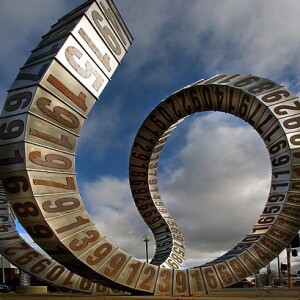
Tuesday Jan 23, 2024
About Infinity with Dr. Scott Olsson
Tuesday Jan 23, 2024
Tuesday Jan 23, 2024
The number of integers (1, 2, 3, 4, and so on) is infinite. And oddly enough so is the number of even integers (2, 4, 6, 8, 10, and beyond). Meaning that the number of even integers is equal to the number of all integers, both odd and even. Welcome to infinity.
While it’s still winter, it’s not too early to think about Wyoming Catholic College’s summer PEAK program for high school juniors and seniors. In it we give them a taste of life at the college including backpacking, horseback riding, Catholic worship and devotion, and classes complete with homework and tests. Not only do high school students enjoy the two weeks of PEAK, but they walk away with a pretty good idea of what it would be like to come to college here at Wyoming Catholic. Many decide that it would be wonderful and join us as freshmen.
Mathematician Dr. Scott Olsson has taught a course at PEAK on infinity. And I asked Dr. Olsson to give us a finite preview of infinity. (To learn more about PEAK 2024, click here.)
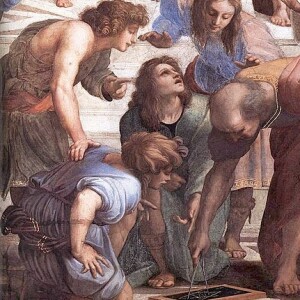
Tuesday Oct 24, 2023
Science and Scientific Knowing with Dr. Scott Olsson
Tuesday Oct 24, 2023
Tuesday Oct 24, 2023
We're regularly told that the only kind of knowing of which we can be certain is "scientific" knowing. What does that mean? How does it apply to the world and our everyday lives.
Mathematician Dr. Scott Olsson has thought and taught a great deal about the questions surrounding science and what it can--and can't--tell us about the world around us. Here are some ideas he brings to his Wyoming Catholic College students.
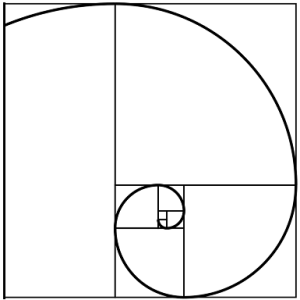
Tuesday May 17, 2022
Euclid and His Theory of Proportions with Dr. Henry Zepedd
Tuesday May 17, 2022
Tuesday May 17, 2022
1. A point is that of which there is no part.
2. And a line is a length without breadth.
3. And the extremities of a line are points.
4. A straight-line is (any) one which lies evenly with points on itself.
5. And a surface is that which has length and breadth only.
Those five definitions are the first five of twenty-three that form the introduction to Euclid’s Elements. They’re the things our second semester freshmen must know before beginning Proposition #1, the start of a mathematical journey that will last through fall semester sophomore year.
Dr. Henry Zepeda, who regularly teaches Euclid, discusses this seminal mathematician and The Elements before commenting on Euclid’s understanding of proportions.

Tuesday Nov 03, 2020
Euclid: From a Point to "The Death Star" with Dr. Henry Zepeda
Tuesday Nov 03, 2020
Tuesday Nov 03, 2020
Beginning the second semester of freshman year, Wyoming Catholic College students begin studying Euclidian geometry. Students prepare for each class carefully waiting to be called to the board to demonstrate one of this week’s propositions.
Euclid wrote his Elements in about 300 BC. Beginning with the definitions of a point and a line, he constructed the geometrical principles we still use today. And our students work their way from “On a given finite straight line to construct an equilateral triangle” to “construct an icosahedron and comprehend it in a sphere” to Book XII, Proposition 17, popularly known as constructing The Death Star.
Why Euclid? Our website puts it this way, “Euclid’s Elements is the foundational text of mathematics in Western civilization.” Dr. Henry Zepeda began this interview by explaining how that's the case.

Tuesday Jul 21, 2020
Ptolemy and the Shape of the Universe with Dr. Henry Zepeda
Tuesday Jul 21, 2020
Tuesday Jul 21, 2020
“The heavens call to you and wheel about you,revealing their eternal splendors,” Virgil told Dante at the end of Purgatorio 14 (148-151),“but your eyes are fixed upon the earth.For that, He, seeing all, does smite you.”
While we could blame light pollution or television or lack of interest or any number of other modern maladies, but it’s clear that, just as in Dante’s time, the heavens call and wheel about and us most of us never notice. If, for example, you know the phase of the moon today, you’re part of a tiny, tiny minority of modern people. Virgil accuses us as well, “your eyes are fixed upon the earth.”
Dante lived at the turn of the 14th century and in his writing used a model of the universe conceived in the second century by astronomer and mathematician Claudius Ptolemy. Born in AD 100 in Alexandria, Egypt, Ptolemy argued from observation of the heavens that the earth (a sphere) was at the center and around it the moon, sun, planets, and stars rotated.
Clearly we no longer believe that, but Ptolemy still has a great deal to teach us about observing the sky and marking it’s beauty and regularity. Dr. Henry Zepeda taught Ptolemy, Copernicus, and Galileo with high school students who have been here at Wyoming Catholic College for our PEAK Program.
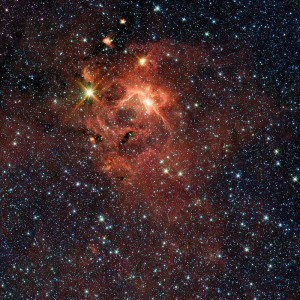
Tuesday Jan 28, 2020
The Simplicity of the Universe with Dr. Scott Olsson
Tuesday Jan 28, 2020
Tuesday Jan 28, 2020
TV producer Stephen Moffatt who among other things produced the sci-fi hit “Dr. Who” commented, “The universe is big, it’s vast and complicated, and ridiculous.” Well, the universe certainly is big and vast, but it is most certainly not ridiculous. As to complicated? It turns out that in a certain sense, the universe is not complicated. It is simple.
Scientists have put forth all kinds of complex ideas about the universe. Chaos theory, string theory are two examples. They are very complicated and, in the end, not terribly helpful. Instead scientists are looking the other direction: away from complexity to simplicity.
Dr. Scott Olsson is this weeks guest telling us what scientists mean by simplicity.
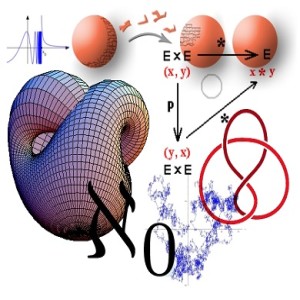
Tuesday Jun 04, 2019
"Is It Okay to Hate Math?" with Dr. Scott Olsson
Tuesday Jun 04, 2019
Tuesday Jun 04, 2019
The late actor Sir Alec Guinness once commented, “All creative people hate mathematics. It is the most uncreative subject you can study.”
By contrast, the German mathematician, Hermann Weyl asserted just the opposite, “Besides language and music, mathematics is one of the primary manifestations of the free creative power of the human mind.”
So which is it? Is mathematics “the most uncreative subject you can study” or “one of the primary manifestations of the creative power of the human mind”?
Wyoming Catholic College professor, mathematician Dr. Scott Olsson—well, he is after all a mathematician so you can guess what he might think. The question is, if you’re a skeptic who has never particularly liked math, can he convince you—the way he has convinced many students over the years.
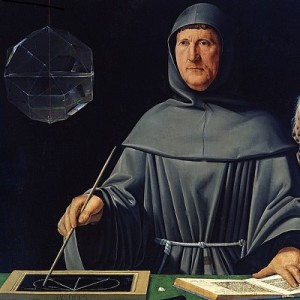
Tuesday Jan 08, 2019
Perfect Solids and Conic Sections with Dr. Henry Zepeda
Tuesday Jan 08, 2019
Tuesday Jan 08, 2019
At Wyoming Catholic, you can tell when geometry test is in the offing. Triangles, circles, and lines along with the propositions that go with them cover every spare white board and occasionally some windows as well as students discuss the diagrams with one another.
Plane geometry—that is, the geometry of two dimensional figures comes first. After that students make the quantum leap in to solid or three-dimensional geometry including perfect solids and conic sections.
In the classroom, many are taught by Dr. Henry Zepeda. Dr. Zepeda who joined the Wyoming Catholic College faculty this year is our guest this week on The After Dinner Scholar.
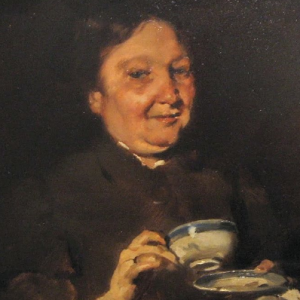
Tuesday Nov 06, 2018
Science in a Cup of Tea with Dr. Scott Olsson
Tuesday Nov 06, 2018
Tuesday Nov 06, 2018
“This cup of tea,” the lady claimed, “was made wrong. You put the tea in first and then the milk rather than putting the milk in before the tea. I could taste the difference immediately.”
Could she really and, if so, how would we know? How do we use experimentation to test her claim that she tastes the difference between a cup where milk was added to tea and one where tea was added to milk? The story is all about the scientific method.
While the answer may seem straightforward enough, it turns out that any scientific experiment is fraught with complications and difficulties. Dr. Scott Olsson’s students have been struggling with some of those complications and difficulties in this the first semester of their junior year. This week on the After Dinner Scholar, Dr. Olsson gives us a glimpse in the questions.

Tuesday May 29, 2018
To Infinity and Beyond with Dr. Scott Olsson
Tuesday May 29, 2018
Tuesday May 29, 2018
The number of integers (1, 2, 3, 4, and so on) is infinite. And oddly enough so is the number of even integers (2, 4, 6, 8, 10, and beyond). Meaning that the number of even integers is equivelent to the number of all integers, both odd and even? Yes. Welcome to infinity.
Each summer Wyoming Catholic College runs what we call our PEAK program for high school juniors and seniors. In it we give them a taste of life at the college including backpacking, horseback riding, Catholic worship and devotion, and classes complete with homework and tests. Not only do high school students enjoy the two weeks of PEAK, but they walk away with a pretty good idea of what it would be like to come to college here at Wyoming Catholic. Many decide that it would be wonderful and join us as freshmen.
This year mathematician Dr. Scott Olsson will be teaching a course at PEAK on infinity. And I asked Dr. Olsson to join us on The After Dinner Scholar with a finite preview of infinity.

